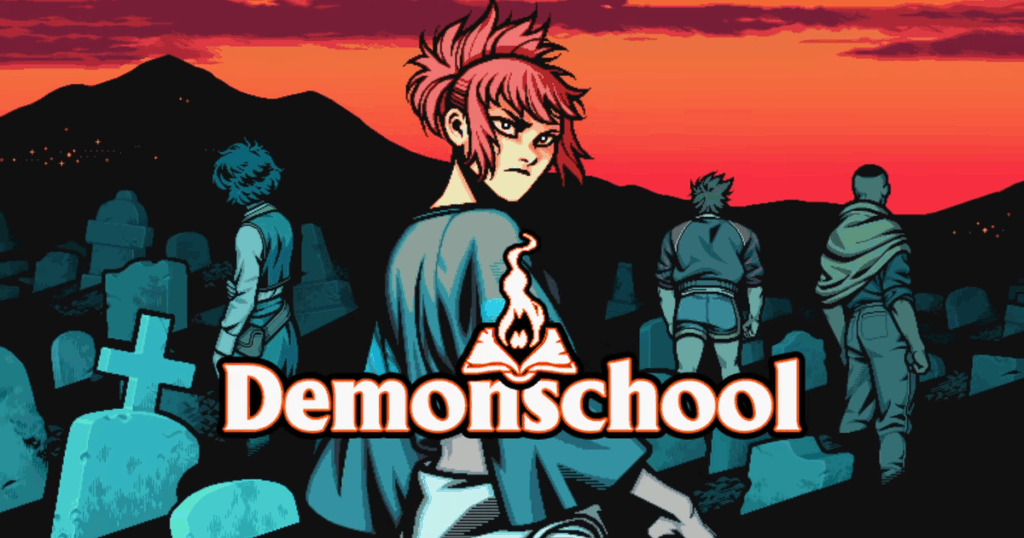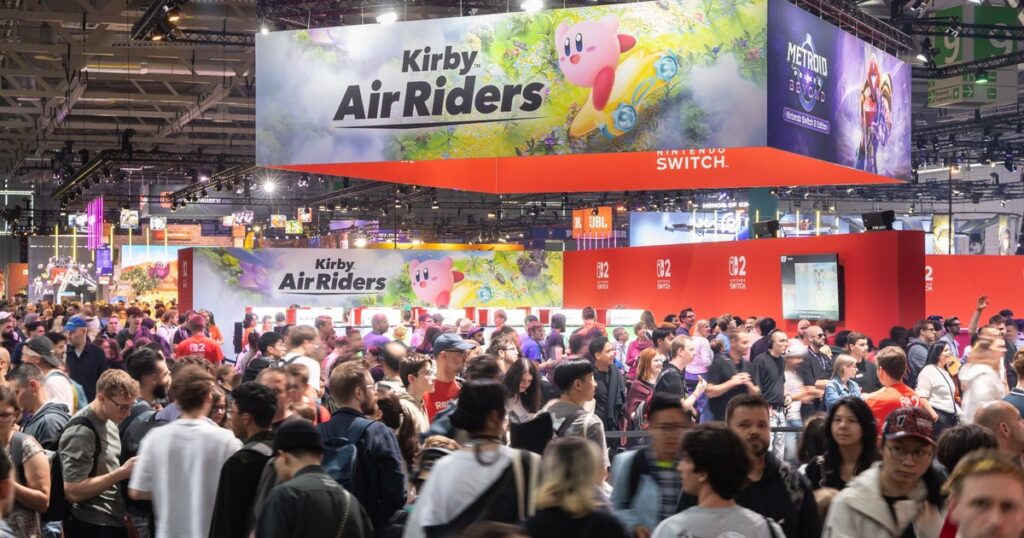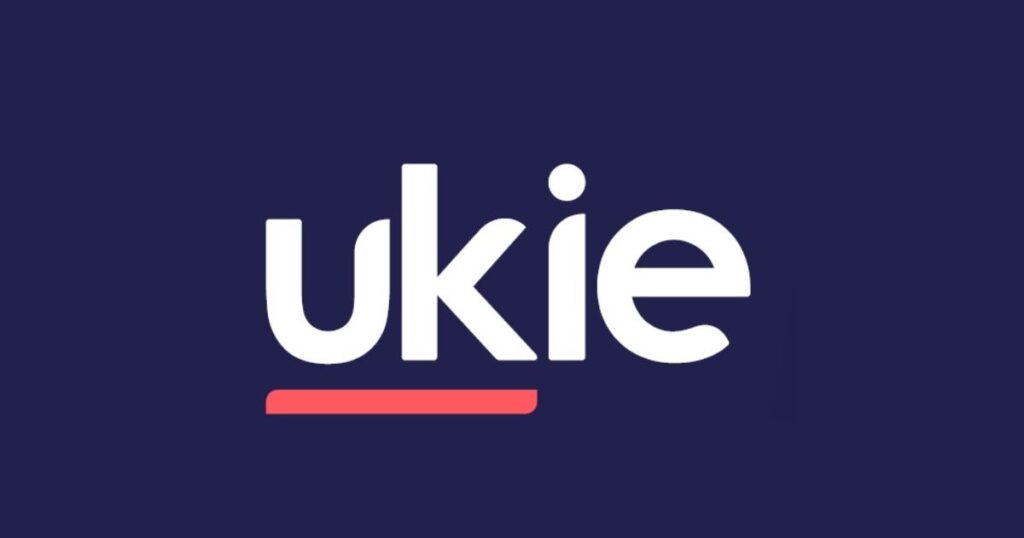The 14-member line-up of the new UK Video Game Council was announced today, but the foundations were laid around seven months ago, says Nick Poole OBE, head of the trade association UKIE.
It all began with Sir Chris Bryant MP, Minister for Creative Industries, Arts and Tourism. Bryant wanted to hear more input from people working directly with games, not just from trade associations like UKIE and TIGA.
“He wanted to hear it from the horse’s mouth, from people that are building games, confronting the reality,” says Poole. “So we pulled together this roundtable, and at that, I think it was [Outright Games’] Nick Button-Brown who said, ‘Wouldn’t it be great to formalise this into a Video Games Council, into a standing body that can advise government?'”
When it came to deciding the make-up of the council, the aim was to represent all of the various sectors, like first-party developers, indies, and co-development studios. “So we had a grid, basically, of roles, and then we were looking at the obvious things: geographic coverage, diversity on the panel, making sure that we were genuinely representing who the industry is.”
The shortlist was chiefly drawn up by Poole, Button-Brown, TIGA head Dr Richard Wilson OBE, and Rebellion CEO Jason Kingsley CBE, but Poole says that suggestions came in from “lots of places”.
The Department for Digital, Culture, Media & Sport (DCMS) requested some changes, too. “We had quite a lot of service providers [and] supporting organisations on there initially,” says Poole. “So they helped finalise and shape the list, that went through for approval, and a little bit of horse trading later, and here we all are.”
“I think the very clear steer from DCMS was they wanted people across the spectrum of the industry at all stages of their careers, and really to represent the whole experience of trying to make a successful video games business in the UK.”
“I’m really pleased with the list,” he adds. “It’s really, really strong.”
Council members will serve three-year terms, up to a maximum of two terms. “And also, I think the thing may grow or shrink, or we may bring other people in if there’s a particular topic we need to cover,” says Poole.
“I’m really pleased with the list. It’s really, really strong.”
Nick Poole, UKIE
One thing that has raised some eyebrows is how Microsoft is represented by a lawyer – Tim Varney, who is head of legal for EMEA Consumer & Marketing.
Poole says it was “absolutely critical” to have Microsoft represented, since it’s a business with “a huge UK footprint”, and they asked Microsoft to provide a candidate. “They have a process internally, and they put forward a really strong nomination,” he says.
“I think people are really focusing on his background as a lawyer, but actually he’s bringing a tremendous amount of knowledge and representation from one of the most significant corporates in the UK.”
“I think having representation at that level from someone like him, from a company like Microsoft, […] is going to be a real strength for the council.”
Three years to bring about change
“I think the key thing for me is that the government’s given us an opportunity to show what we can do,” says Poole. He notes that the government’s £30 million Games Growth Package is a “big bet they’re placing on the industry” that is also “politically challenging”.
While games have been highlighted by the government as a ‘frontier industry’, he explains, other creative sectors haven’t benefited as much. “So one of the conversations we’ve been having is, how can we show that video games are helping the whole creative sector: so authors and theatre and performance?”
“But the critical thing, I think, from my point of view, is we have three years, essentially, before we’re cranking up for the next general election.”
“We’ve been given an opportunity. We have three years to show what we can do. And so while it’s brilliant to have got to this starting point, the real work essentially starts now, because we have to come together as an industry and demonstrate what we can do with 30 million, so that eventually we can put forward the case for 300.”
Poole says that working with the current political administration is a real break from the past in terms of attitudes towards the games sector. “There is a sense of mission and purpose with this government,” he says.
“They know that the only way we’re going to be able to recover from some of the economic malaise is by genuinely delivering growth, and growth that touches the whole of the UK. And so it was pushing at an open door to be able to go in and say, video games are based everywhere, we have genuine growth potential, we’ve demonstrated a track record of growth.”
“To feel that enthusiasm from senior politicians is brilliant”
Nick Poole, UKIE
It’s a remarkable change from the past. “To feel that enthusiasm from senior politicians is brilliant and fairly unprecedented in my experience of 25 years of lobbying government,” says Poole.
“Suddenly you’re talking to politicians who grew up with games, where previously, I think there was just a complete lack of comprehension.”
Once upon a time, under the previous administration, the games sector was simply lumped together with film and TV under the general heading of ‘screen’, he adds. “I think this really marks the first recognition that video games are an industry sector in our own right, with our own needs, and our own potential. And that is night and day. That’s been amazing.”
What will the council do?
In terms of the UK Video Game Council’s work, Poole says it will act as an advisory body to Bryant. “So it’ll meet the minister at least twice a year and run through with him the key challenges and opportunities facing the industry.”
“We are really lucky to have Chris Bryant,” he adds. “He is a person who believes in the industry.”
The council has a purely advisory role, with no ability to effect change directly. But having a direct line to the government marks a big change. Poole notes that under the previous administration, “it was nigh on impossible to get a meeting with the minister, and when you did, the standard line was, ‘It’s not for me to intervene’. And now we have ministers that actually want to make change happen.”
Ultimately, Poole would like that change to “become much more concrete and much harder to reverse away from.”
“So I’d like to see the UK Video Games Council grow into a regular advisory body with a member of staff that’s coordinating and attaching, because at the moment, this is still UKIE and TIGA providing support and coordination.”
He adds that he’d also like to see a dedicated funding stream for video games that doesn’t go through film and TV, which he calls “an artefact of the old way of doing things”.
“I think games deserve funding that is designed around the needs of games businesses. So the UK Games Fund is brilliant, but I’d like to see an actual established channel.”
He adds that he would also like games to be represented in key policy documents in areas like health and education. “Because then once we have those footholds, it’s much harder to go back.”
Where will the money go?
The UK Creative Industries Sector Plan allocated £30 million of government money over three years as part of the ‘Games Growth Package’, mentioning the UK Games Fund and the London Games Festival as beneficiaries. But it’s still not clear how that money will be divided up, and who else might benefit.
“We’re convening a meeting with all of the key players in the sector plan and the Games Growth Package to say, ‘Okay, what does it actually mean? What have we been told? What do we know about the money?'” says Poole.
He adds that the aim will be to decide where best to use the cash to deliver growth for the industry.
“Do you invest in [the] flourishing of indies? Do you help more people reach a marketable proposition? Do you look at scaling funding? Do you look at match funding to unlock equity and help people to scale? With more people saying they’re bypassing publishing and going straight to market, do you help people get to that?”
“What I’m really, really keen that we do as a collective is really think hard about what we want to be able to say in three years’ time about how we’ve used this money.”
The sector plan also highlighted a new industry-led video games skills strategy. “UKIE set it up about a year ago and started bringing people together, and found there’s a huge appetite for really getting the industry’s workforce needs under control,” says Poole.
He says that they were looking at the entire continuum, from early years education and more accessible and inclusive routes to entry into work, right up to training and development, and diversifying the leadership of the industry.
“We set this network up, we had three or four meetings, and there was a massive consensus that we needed to work together to make something happen. So we went in to talk to DCMS about it, and then it appears in the Games Growth Package, which is amazing.”
“So it’s now formally mandated as a network, which UKIE coordinates, chaired by Lisa Opie from Ubisoft, and with four working groups that target each of those four areas.”
“We have an opportunity to think really hard about the kind of industry we want to be in the future”
Nick Poole, UKIE
“In October, we’re going to have a game skills summit, where we bring all of the players together, because there are a lot of people very invested in the game skills agenda.”
“What’s most exciting I think for me is we have an opportunity to think really hard about the kind of industry we want to be in the future, how the UK remains competitive, and celebrating the new talent that’s going to be building the industry in the next 10 or 20 years.”
The idea is to look closely at the needs of the new generation of young people coming into the industry. “What’s the mindset they’re bringing? What skills do they need? How do we create a kind of growth, enterprise spirit in those leaders?”
“I think it’s about partly bringing in those voices, the people we don’t know about, the people who are seeing extraordinary growth on Roblox and Telegram and Discord, and saying, Okay, what are the characteristics that it’s going to take to succeed over the next 20 years?”
Immigration
But meeting the games industry’s need for skills will also involve bringing in talent from abroad – and that’s where the recent tightening up of immigration criteria appears to go against the government’s wish to tackle skills gaps.
Poole says that UKIE is disappointed to see the salary thresholds increasing for employers sponsoring workers under the Skilled Worker route. For example, the salary threshold for programmers and software developers will increase from £49,400 to £54,700 from July 22.
He says that UKIE is looking to mount a response to the policy on behalf of the industry. “We don’t want to be taxing British businesses for accessing international talent.”
“In a broad view, immigration is only a bad thing if you fail to plan for it,” thinks Poole. “And so migrants, immigrants have driven growth, success, innovation in all of the economies where they arrive, where there are jobs and infrastructure and housing and education that supports them. And if people want to build lives and successful companies here, I’m all for it.”
“The ambition to grow is at odds with the ambition for a kind of politically visible, tighter control on immigration rules.”
“As an industry, games talent is global, you’ll find incredible people all over the world. And so to keep healthy, to keep growing, we need to reduce frictions as far as we possibly can for the mobility of that talent.”
“We also need to be conscious that other territories are working really hard to be attractive to talent.” By contrast, he thinks the UK now looks less attractive. “I think for too long, there’s been this slightly kind of negative rhetoric around us,” he says.
“We need to be conscious that the slightly alarmist rhetoric in use by some politicians travels”
Nick Poole, UKIE
“I was out in Dubai talking to some Chinese investors, and I said you must come to London for a meeting. And they said, ‘We’re not coming to London, it’s too dangerous’. And so I think we need to be conscious that the slightly alarmist rhetoric in use by some politicians travels – and I think you can talk an economy down as well as up.”
“We need to be positive and ambitious about what we are as an industry and as an industrial economy,” affirms Poole.
“This is an astonishing place to start a business. It’s a fantastic place to live. It’s an amazing creative and cultural environment to be building a creative business [in]. And I think we just have to transform that narrative,” he concludes.
“We need to become new again in both our own eyes and the eyes of the world, and to recover that sense of growth and ambition.”











